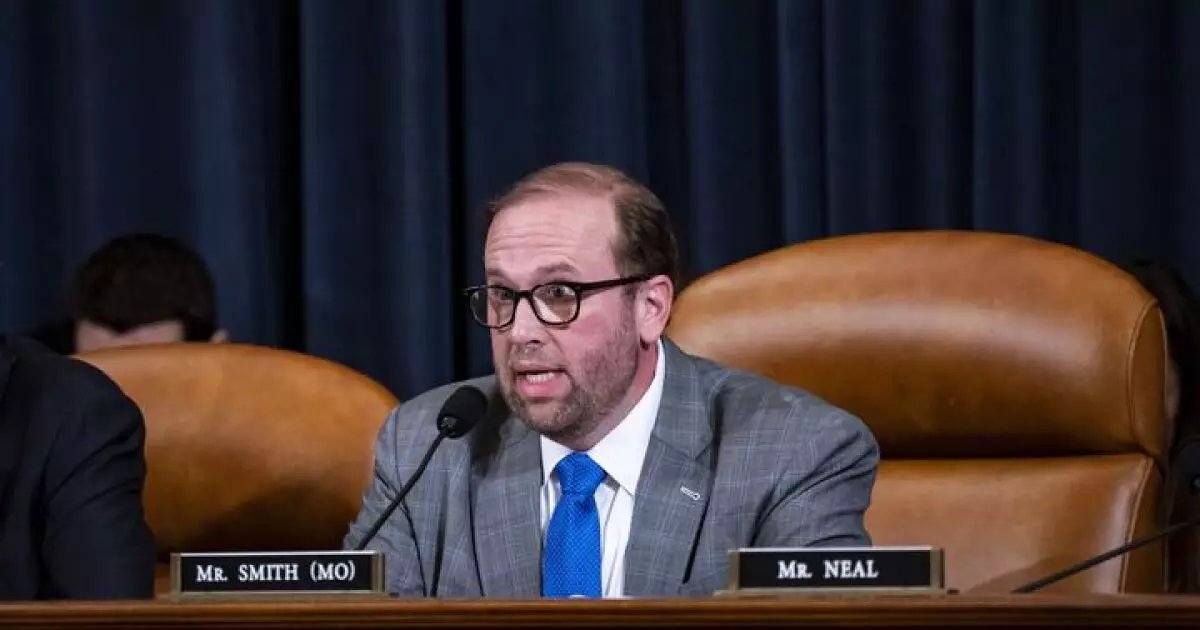The opening debates in the 119th Congress regarding the Tax Cuts and Jobs Act (TCJA) have ignited a crucial conversation about the implications of tax policy on both economic growth and national debt. At the heart of this discussion is a stark dichotomy: some lawmakers are advocating for the continuation of tax cuts that they argue fuel economic growth, while others are sounding the alarm on the increasing national debt exacerbated by such policies. As divergent viewpoints surface, the implications for municipal finance and broader economic health become increasingly concerning.
During a recent gathering of the House Ways and Means Committee, Chairman Jason Smith underscored the belief that tax cuts provided essential momentum for the economy during former President Trump’s administration. According to Smith, these tax cuts were integral in reversing the economic stagnation that characterized the Obama years. Proponents of tax cuts point to metrics such as increased wages, historically low unemployment rates, and significant reductions in poverty as indicators of success. These data points portray a narrative that associates tax reduction with economic vigor, promoting the continuation of the TCJA as a means to sustain growth.
Yet, the opposition led by the Democratic minority presents a counter-narrative. They assert that the growth attributed to the TCJA is merely a façade built upon a rapidly rising national debt. Ranking Democrat Richard Neal expressed skepticism over the rationale behind suggesting concurrent strategies of combating national debt while proposing an additional $4 trillion in tax cuts. This juxtaposition raises essential questions about fiscal responsibility and the long-term consequences of prioritizing immediate economic stimulation over sustainable financial practices.
The concerns voiced by the Democrats reflect a larger critique regarding how the TCJA modified key elements of tax law, particularly those impacting the municipal finance community. The elimination of advance refunding for tax-exempt bonds and the introduction of a $10,000 cap on state and local tax (SALT) deductions represent significant legislative changes that could have repercussions for municipalities reliant on these tax advantages. As the debate continues, these provisions remain contentious, with varying interpretations of their economic implications.
Despite the polarized views on extending the TCJA, there is an unexpected level of consensus around certain aspects of the legislation. Both parties appear to agree on the necessity of maintaining current tax rates for middle-class families, setting the stage for adjustments primarily directed at corporate tax rates. The dichotomous nature of the current tax policy discussions raises significant questions about the broader objectives of tax legislation. Should it primarily serve as a tool for economic growth, or does it have an inherent obligation to safeguard fiscal integrity?
The Republican strategy involved bringing forth witnesses—small business owners and parents—to present a human face to the potential benefits of the TCJA, emphasizing the importance of provisions like the Child Tax Credit and the Section 199A deduction for qualified business income. In contrast, Democrats emphasize the inequities perpetuated by the Trump-era tax cuts and advocate for increasing taxes on the wealthy and corporations to address fiscal challenges, underscoring Robert Doggett’s remarks concerning the urgent need for tax reform that values revenue generation.
As Congress prepares to delve deeper into tax policy debates, how the discussion intersects with the national debt ceiling looms large. The debt ceiling negotiations will undoubtedly influence legislative decision-making as the ramifications of unfettered tax cuts come under scrutiny. With escalating national debt potentially affecting the nation’s credit rating, any steps taken to extend the TCJA must be weighed against these broader economic realities.
Additionally, the recent announcement of subcommittee assignments in the Ways and Means Committee serves to underscore the evolving landscape of fiscal policy. With representatives assuming key roles across several subcommittees, including Social Security and Trade, the stage is set for meticulous examinations of complex issues related to taxation, social welfare, and economic stability.
The 119th Congress is poised at a critical juncture, where the principles of tax policy will need to navigate the intricate balance of promoting economic growth while simultaneously addressing the challenges posed by national debt. As tax cuts remain a contentious issue, stakeholders must grapple not only with the immediate implications of their decisions but also with the long-term fiscal health of the nation.

